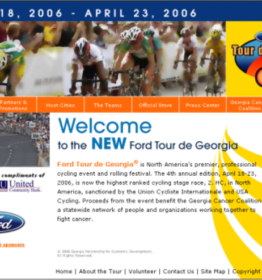50 Classics: The Great Gatsby by F. Scott Fitzgerald
 Wrapped up The Great Gatsby by F. Scott Fitzgerald last night, in keeping with my 50 Classics project. Although it wasn’t quite the “feel good” novel of the list, it was a welcome change of direction from the crushing dystopia of last week’s 1984. Gatsby had a lot of expectations to live up to (Pipistrella apparently sleeps with a copy under her pillow by accounts) and I felt it did deliver in many ways. In my opinion, The Great Gatsby earns its status as a classic differently from many other classic novels. Instead of capturing some timeless tale which translates into every era, The Great Gatsby is a chunk of amber; a fleeting period in American history preserved for readers of future eras. It is nestled between the bookends of the Great War and The Depression. In this niche I felt it communicated the spirit of that era to me (or at least what I felt that era might have been like). It is also delineated sharply geographically. There is a tangible divide between East and West, not only across the country but even in the town where the characters currently reside. This divide is apparent beyond simply geography and is defining in terms of values, attitude, behavior, economics and more. In terms of atmosphere, one gets an intense feeling of regret, romantic fatalism and an obsession with the past. Gatsby himself moreso than any other, with his quest to turn back the clock to a window of opportunity he feels he can recreate if only he can arrange things perfectly. Ultimately, he and everyone else around him are trapped or consigned to the consequences of their past choices. No one, except for Nick our narrator and witness is able to escape that dreadful inertia. Even then, it could be argued that Nick will be haunted and confined by the events and choices shaped during the course of his time in the East.
Wrapped up The Great Gatsby by F. Scott Fitzgerald last night, in keeping with my 50 Classics project. Although it wasn’t quite the “feel good” novel of the list, it was a welcome change of direction from the crushing dystopia of last week’s 1984. Gatsby had a lot of expectations to live up to (Pipistrella apparently sleeps with a copy under her pillow by accounts) and I felt it did deliver in many ways. In my opinion, The Great Gatsby earns its status as a classic differently from many other classic novels. Instead of capturing some timeless tale which translates into every era, The Great Gatsby is a chunk of amber; a fleeting period in American history preserved for readers of future eras. It is nestled between the bookends of the Great War and The Depression. In this niche I felt it communicated the spirit of that era to me (or at least what I felt that era might have been like). It is also delineated sharply geographically. There is a tangible divide between East and West, not only across the country but even in the town where the characters currently reside. This divide is apparent beyond simply geography and is defining in terms of values, attitude, behavior, economics and more. In terms of atmosphere, one gets an intense feeling of regret, romantic fatalism and an obsession with the past. Gatsby himself moreso than any other, with his quest to turn back the clock to a window of opportunity he feels he can recreate if only he can arrange things perfectly. Ultimately, he and everyone else around him are trapped or consigned to the consequences of their past choices. No one, except for Nick our narrator and witness is able to escape that dreadful inertia. Even then, it could be argued that Nick will be haunted and confined by the events and choices shaped during the course of his time in the East.




















